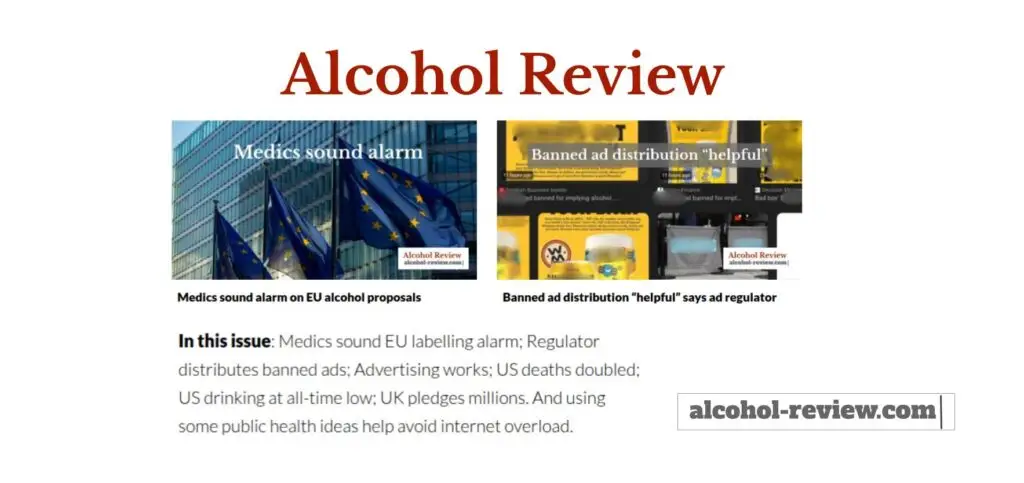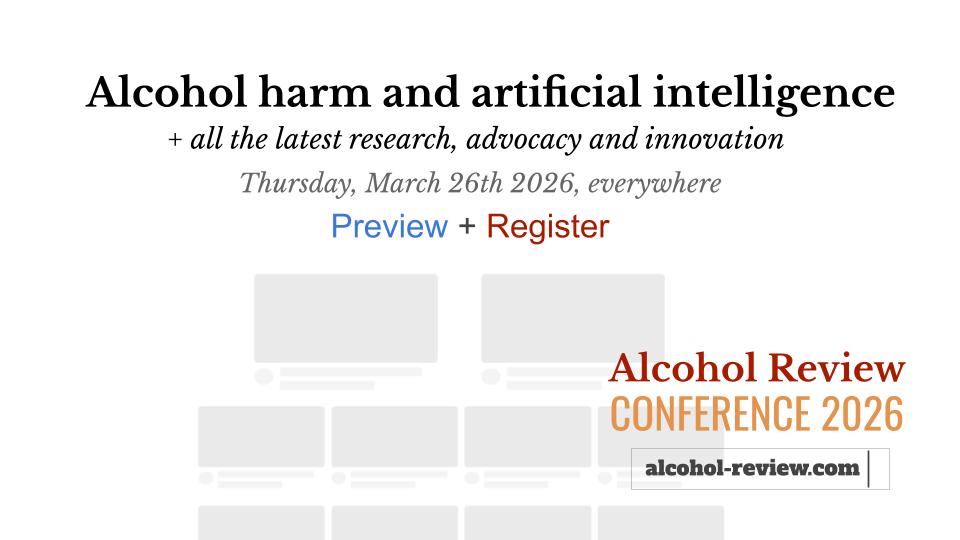
Please subscribe for more
In this issue: Medics sound EU labelling alarm; Regulator distributes banned ads; Advertising works; US deaths doubled; US drinking at all-time low; UK pledges millions. And using some public health ideas help avoid internet overload.
AR2026: Date set for March 26th. Register now for full event participation and a year of premium newsletter access. You will also gain full access to AR2025, which gives expert insight on how to push back against the alcohol industry at both the local and international levels.
News
Medics sound alarm: Two recent EU labelling proposals risk decades of progress in reducing alcohol-related harm, warned the recently formed European Health Alliance on Alcohol. Belgium’s government also raised concerns earlier this month. Alcohol Review said the QR code proposal is a sham.
Regulator defends distributing banned ads: The UK’s advertising self-regulator is in favour of the distribution of alcohol ads it banned, Alcohol Review was told last month, after millions were exposed to a banned ad this week. The self-regulator then distributed more banned ads this month.
Advertising works: “Most evidence suggests that exposure [to alcohol marketing and advertising] is associated with increased intention to consume, consumption, and harmful consumption,” found a review from Public Health Scotland. A Polish NGO called for a complete ban on advertising it last month.
US deaths almost doubled since 1999: Alcohol-induced deaths in the US increased by 89% from 1999 to 2024, with the largest relative rise among females aged 25–34 which almost tripled.
US alcohol drinking at all-time low: Steep falls in alcohol drinking among women, Republicans and people at both the top and bottom ends of the economic spectrum reduced the percentage of alcohol drinkers in the US to its lowest point in 90 years, according to a Gallup poll.
UK pledges millions for research: The UK government said it will spend £10m ($14m) on addiction researchers through schemes from the Society for the Study of Addiction, National Institute for Health and Care Research and the Medical Research Council.
Feature
Using public health ideas to avoid internet overload
Alcohol Review’s editor applied some public health policies borrowed from alcohol to avoid internet overuse, with some success.
Please subscribe for more ■
